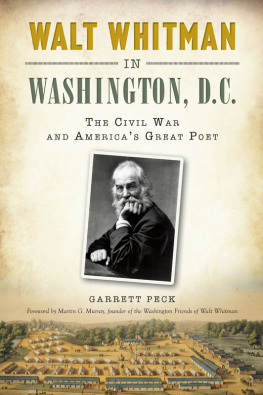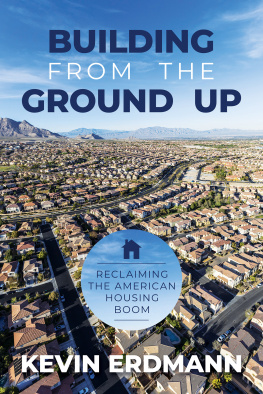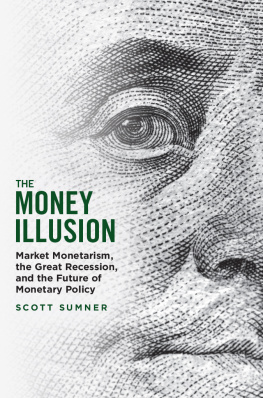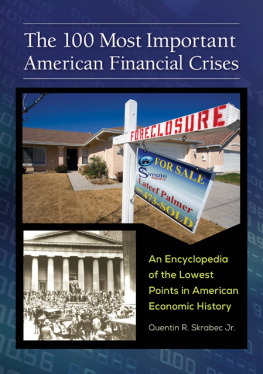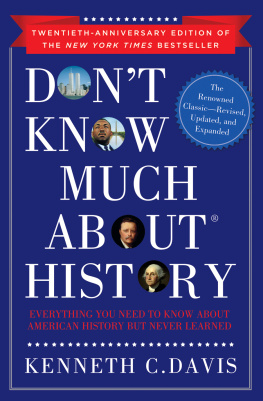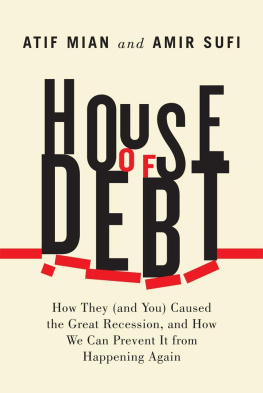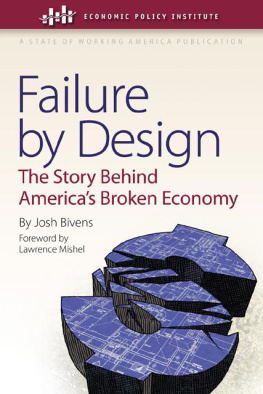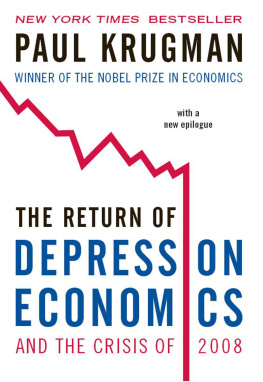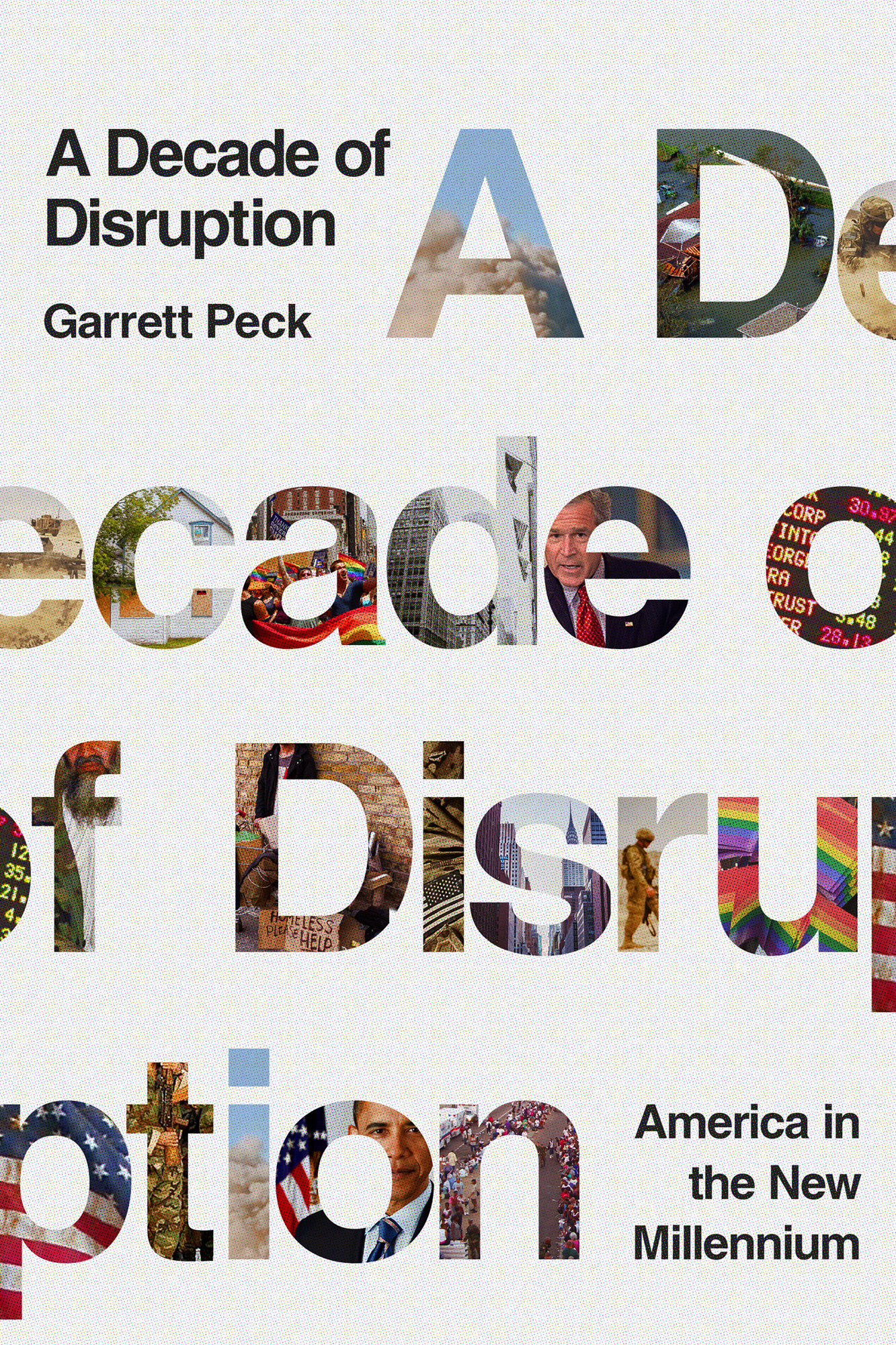Contents
Guide
PRAISE FOR GARRETT PECKS
A DECADE OF DISRUPTION
The first decade of the new millennium was an epochal decade of disruption as Garrett Peck convincingly describes it, setting the stage for the rise of Donald Trump in our current age of polarization and discord. A must read for anyone who wants to understand the opportunities, challenges and fault-lines facing America and the world today, and how we got here.
Richard Florida, author ofThe Rise of the Creative Class
A lucid history of the first decade of the twenty-first century, which set trends in motion that are with us today. What to call that time? Washington, D.C.based historian Peck suggests that the decade of disruption is just about right to describe an era in which technology ravaged entire industries. In his nimble yet fact-dense account, the author enumerates many errors, from gerrymandering and the expansion of the imperial presidency to the ideological sclerosis of the Republican Party and the destruction of the middle class. A valuable road map that shows us how we got where we are today.
Kirkus Reviews
ALSO BY GARRETT PECK
The Prohibition Hangover: Alcohol in America from Demon Rum to Cult Cabernet
Prohibition in Washington, D.C.: How Dry We Werent
The Potomac River: A History and Guide
The Smithsonian Castle and the Seneca Quarry
Capital Beer: A Heady History of Brewing in Washington, D.C.
Walt Whitman in Washington, D.C.: The Civil War and Americas Great Poet
The Great War in America: World War I and Its Aftermath
A DECADE OF DISRUPTION
Pegasus Books, Ltd.
148 W 37th Street, 13th Floor
New York, NY 10018
Copyright 2020 by Garrett Peck
First Pegasus Books cloth edition June 2020
Interior design by Maria Fernandez
Jacket design by Derek Thornton, Notch Design
Imagery is courtesy of Shutterstock Images
All rights reserved. No part of this book may be reproduced in whole or in part without written permission from the publisher, except by reviewers who may quote brief excerpts in connection with a review in a newspaper, magazine, or electronic publication; nor may any part of this book be reproduced, stored in a retrieval system, or transmitted in any form or by any means electronic, mechanical, photocopying, recording, or other, without written permission from the publisher.
ISBN: 978-1-64313-444-4
ISBN: 978-1-64313-445-1 (eBook)
Distributed by Simon & Schuster
www.pegasusbooks.us
To Bishop Gene Robinson
Who makes a difference every day.
INTRODUCTION
T he Cold War, an ideological battle between the democratic West and communist Soviet Union that erupted in the wake of World War II, ended in 1989 with the fall of the Berlin Wall. Two years later the Soviet Union itself collapsed, having been established during the darkest days of World War I as the first outpost of the proletarian revolution that was meant to sweep over the world. Instead, the communist empire fell apart and the West emerged victorious. Some thought that history was over. It wasnt. The end of the Cold War only closed one chapter in human history and opened a new one.
The 20th century was known as the American Century. As France was the great power in the 18th, and Great Britain the global power in the 19th, the 20th century was marked by American cultural, economic, and political dominance, particularly after the United States victory in World War II. But by the end of the century, the U.S. had plenty of competition as other nations caught up.
America found itself in an increasingly crowded field, some of which would undoubtedly surpass the country one day. China was growing by such leaps that it overtook Japan as the second-largest economy, though still far behind the U.S. The European Unionclosely allied to the Americans as democratic societiesdrew ever closer economically and politically, and even launched its own currency, the euro. Russia was greatly diminished after the Cold War but still harbored aspirations to regain some of the lost glory of the Russian Empire. That said, by the end of the 20th century, the U.S. was still the only superpower on the block. But the Pax Americana was about to end.
The United States experienced a turbulent first decade of the 21st century, tumultuous years of economic crises, social and technological change, and war. The decade was bookended by two financial crises: the bursting of the Internet bubble in 2000, followed by the Great Recession in 2008. Americans earned tremendous sympathy after the terrorist attacks on September 11, 2001, but then squandered that global goodwill with an ill-fated invasion of Iraq eighteen months later. Banks deemed too big to fail were rescued when the federal government bailed them out, but meanwhile millions of people had lost their homes to foreclosure and witnessed the wipeout of their retirement savings.
Americans may have felt they were treading water economically, and they were right. The two economic crises represented years of lost opportunities: two wars paid for on the nations credit card, and a major federal budget surplus changed to a deficit through tax cuts that largely benefited the wealthy. The fallout from the Great Recession helps explain the sharply polarized society in the years that followed, when populists ran amok on both the left and the right, and the country seemed to divide into two separate and hostile tribes.
Like many readers, I experienced the turbulent years of the first decade. I live about three miles from the Pentagon. On the morning of 9/11, I was working from home and had the windows of my apartment open, as it was just the most gorgeous day. I had the TV on, watching the horror unfold as the second plane struck the South Tower of the World Trade Center. I called my parents in Sacramentothey were just getting upand told them to turn the TV on. Were under attack, I told them.
And then about forty minutes later came a loud BOOM. It didnt initially registerit sounded like a truck tire exploding. But within a few minutes CNN announced that a plane had hit the Pentagon. Looking out the window I saw a huge plume of black smoke rising. That really struck home. The fire department sirens wailed throughout the morning as trucks came from all over the D.C. area. Im enormously proud of the Arlington County Fire Department, which was first at the scene and provided much of the manpower to fight the blaze at the Pentagon.
My office was in Pentagon City, and my window provided a direct view of the crash site. Over the next year I watched as construction workers toiled around the clock to rebuild the damaged wing of the Pentagon. They took a great deal of pride in this, and they completed the reconstruction before the first anniversary of 9/11.
While workers were rebuilding the Pentagon, my company, WorldCom, went into bankruptcy in 2002. The constant layoffs that followed were the most demoralizing thing I have ever experienced. It felt like we were undergoing a round of layoffs every three weeks, which pretty much halts worker productivity as you wonder who is next and mourn for the friends whove lost their jobs. I was never let go. But every time I hear the term shareholder value, I shudder to think of how the companys leaders committed fraud to increase the stock price. It gives pause to think how many companies are beholden to Wall Street, rather than to their customers.



